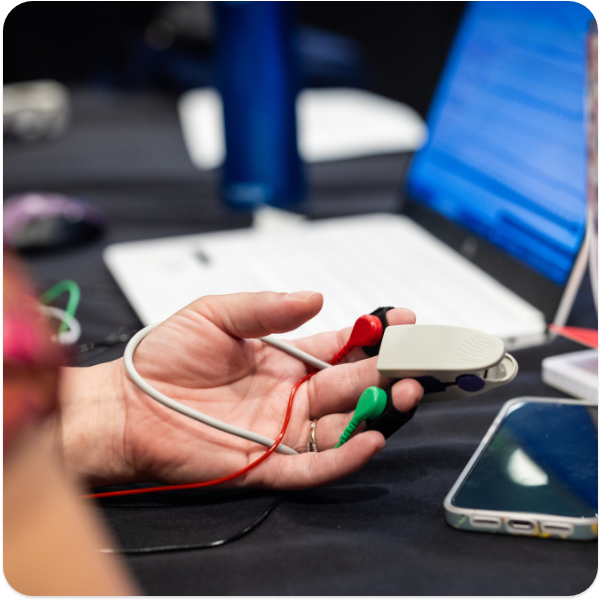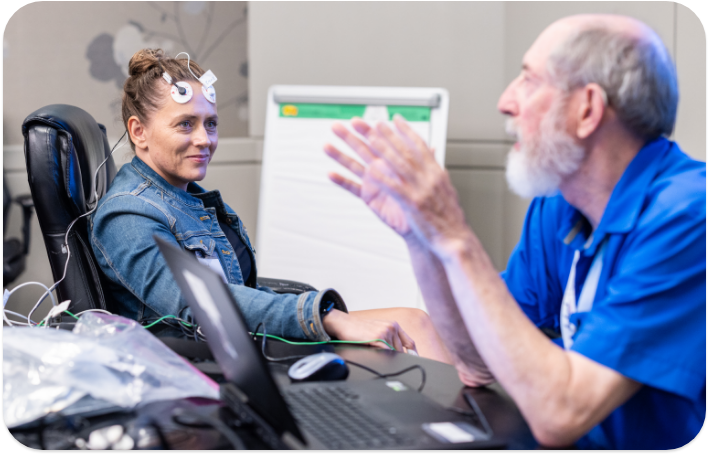What Is Psychophysiology?
Psychophysiology is a branch of psychology that closely examines the physiological basis of psychological functions.
For example, imagine a student’s heart rate skyrocketing as they approach a classroom to sit for an exam they did not study for; a standard psychologist would dig into the emotional reasons the student avoided their studies while a physiologist would be more interested in the acceleration of the student’s heartbeat. A psychophysiologist, on the other hand, aims to find the connection between these reactions.
Psychophysiology requires an empathetic understanding of the human experience. To ease human suffering, you must be able to treat individuals using a humanistic approach, considering their entire lived experience as you help them uncover why their brain and body interact the way they do.
What Can You Do With a Psychophysiology Degree?
Our psychophysiology master’s and Ph.D. programs are designed to help you assess the biological basis of behavior, conduct and analyze effective research methods, and promote functional best practices in your field. They have helped our graduates bring psychophysiology techniques to their current careers, improve their already established private practices, or open their own wellness organizations.
Psychophysiology graduates have the skills and competencies to pursue a wide variety of successful and rewarding careers within different working environments and settings. Our master’s and Ph.D. in Psychophysiology programs prepare students by expanding their knowledge base and clinical practices through online graduate courses such as the following:
- Foundations of Psychophysiology
- Psychophysiological Recording, Assessment, and Intervention
- Basic Hypnosis: Optimal Functioning
- Basic Biofeedback
- Basic Neurofeedback
- Psychophysiological Research
- Basic Bioscience
Career Settings
- Military and governmental agencies
- Professional sports organizations
- College, amateur, and youth sports
- Performing arts centers
- Research
- Higher education
Why You Should Study Psychophysiology
Our practice-oriented approach to psychophysiology expands beyond standard coursework to emphasize practical training in the latest intervention techniques, including biofeedback, neurofeedback, hypnosis, stress management, and relaxation training.
Our humanistic approach combines distanced learning with community and connection, allowing you to learn at your own pace without sacrificing opportunities to form lifelong friendships and professional relationships with classmates, faculty, and institutional partners.

UNBOUND: Psychophysiology
Discover the unique ways psychophysiology students, alumni, and faculty apply their education to facilitate mind-body healing in the latest from UNBOUND, our online magazine.

Saybrook Learning Model
Our psychophysiology programs offer an enriching, asynchronous online experience with occasional synchronous elements that bring us together as a community for connection and collaboration. Although most of your time will be online, in-person attendance may be necessary at a University Learning Experience depending on your program’s requirements. Visit the Saybrook Learning Model page to learn more about the University Learning Experience.

























